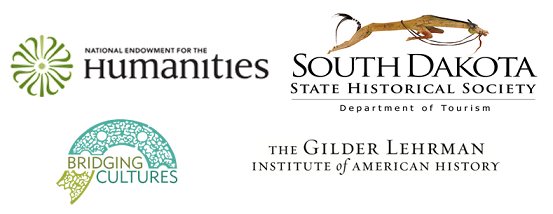
The Museum of the South Dakota State Historical Society at the Cultural Heritage Center in Pierre is one of 473 institutions across the country awarded a set of four films chronicling the history of the civil rights movement.
Created Equal: America’s Civil Rights Struggle is an initiative of the National Endowment for the Humanities that uses the power of documentary films to encourage community discussion of America’s civil rights history. NEH has partnered with the Gilder Lehrman Institute of American History in New York to develop programmatic and support materials for the sites. The project will begin in Pierre in February 2015.
The powerful documentaries -- The Abolitionists, Slavery by Another Name, Freedom Riders, and The Loving Story -- include dramatic scenes of incidents in the 150-year effort to achieve equal rights for all. Freedom Riders received an Emmy in 2012, and The Loving Story and The Abolitionists have been nominated for Emmys in 2013. Each of the films will be part of a larger project that studies the Civil Rights movement.
To introduce four documentaries with riveting new footage illustrating the history of civil rights in America, the Museum of the State Historical Society will offer a series of programming opportunities centered on the films.
“We are just beginning to think about our programming plan for the project,” commented Jay Smith, museum director. “We want to collaborate on this project and toward that end we will be talking with our universities and area schools, as well as with the South Dakota Humanities Council, to provide a range of activities.”
“These films chronicle the long and sometimes violent effort to achieve the rights enumerated in the Declaration of Independence — life, liberty and the pursuit of happiness — for all Americans,” Smith said. “We are pleased to receive a grant from NEH to provide programming around these films.”
Each of the films was produced with NEH support, and each tells remarkable stories of individuals who challenged the social and legal status quo of deeply rooted institutions, from slavery to segregation.
“Created Equal programs bring communities together to revisit our shared history and help bridge deep racial and cultural divides in American civic life,” Smith said.
Visit www.gilderlehrman.org/createdequal for more information.
The Created Equal film set is made possible through a major grant from the National Endowment for the Humanities, as part of its Bridging Cultures initiative, in partnership with the Gilder Lehrman Institute of American History.
About the South Dakota State Historical Society
The South Dakota State Historical Society is a division of the Department of Tourism. The Department of Tourism is comprised of Tourism, the South Dakota Arts Council, and the State Historical Society. The Department is led by Secretary James D. Hagen. The State Historical Society, an Affiliate of the Smithsonian Institution, is headquartered at the South Dakota Cultural Heritage Center in Pierre. The center houses the society’s world-class museum, the archives, and the historic preservation, publishing and administrative/development offices. Call (605) 773-3458 or visit www.history.sd.gov for more information. The society also has an archaeology office in Rapid City; call (605) 394-1936 for more information.
About the Gilder Lehrman Institute of American History
Founded in 1994, the Gilder Lehrman Institute of American History is a nonprofit organization that promotes excellence in the teaching and learning of American history. Programs include publications, teacher seminars, a national Affiliate School Program, traveling exhibitions, and online materials for teachers, students, and the general public. www.gilderlehrman.org
About the National Endowment for the Humanities
Created in 1965 as an independent federal agency, the National Endowment for the Humanities supports learning in history, literature, philosophy, and other areas of the humanities. NEH grants enrich classroom learning, create and preserve knowledge, and bring ideas to life through public television, radio, museum exhibitions, and programs in libraries and other community places. www.neh.gov
